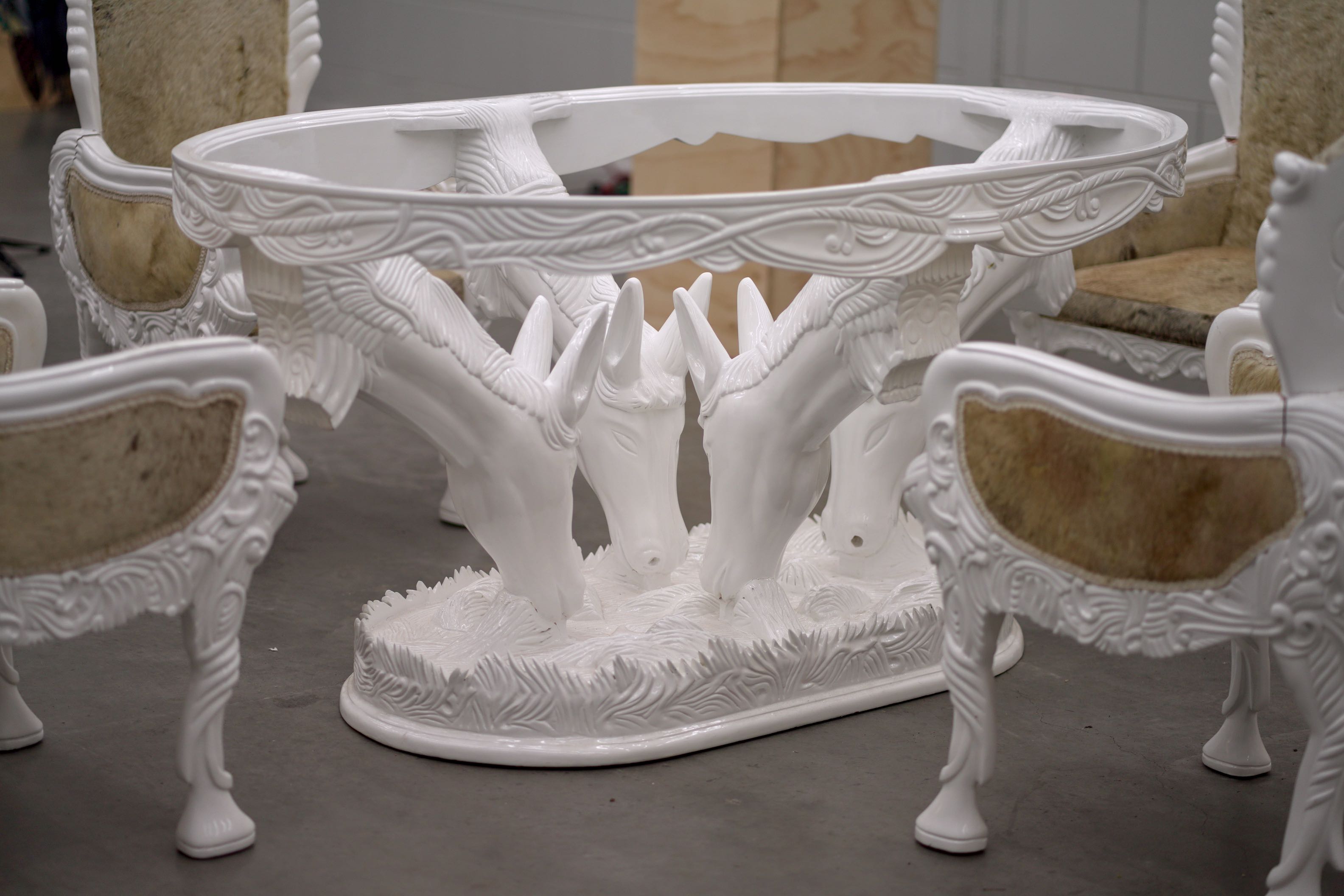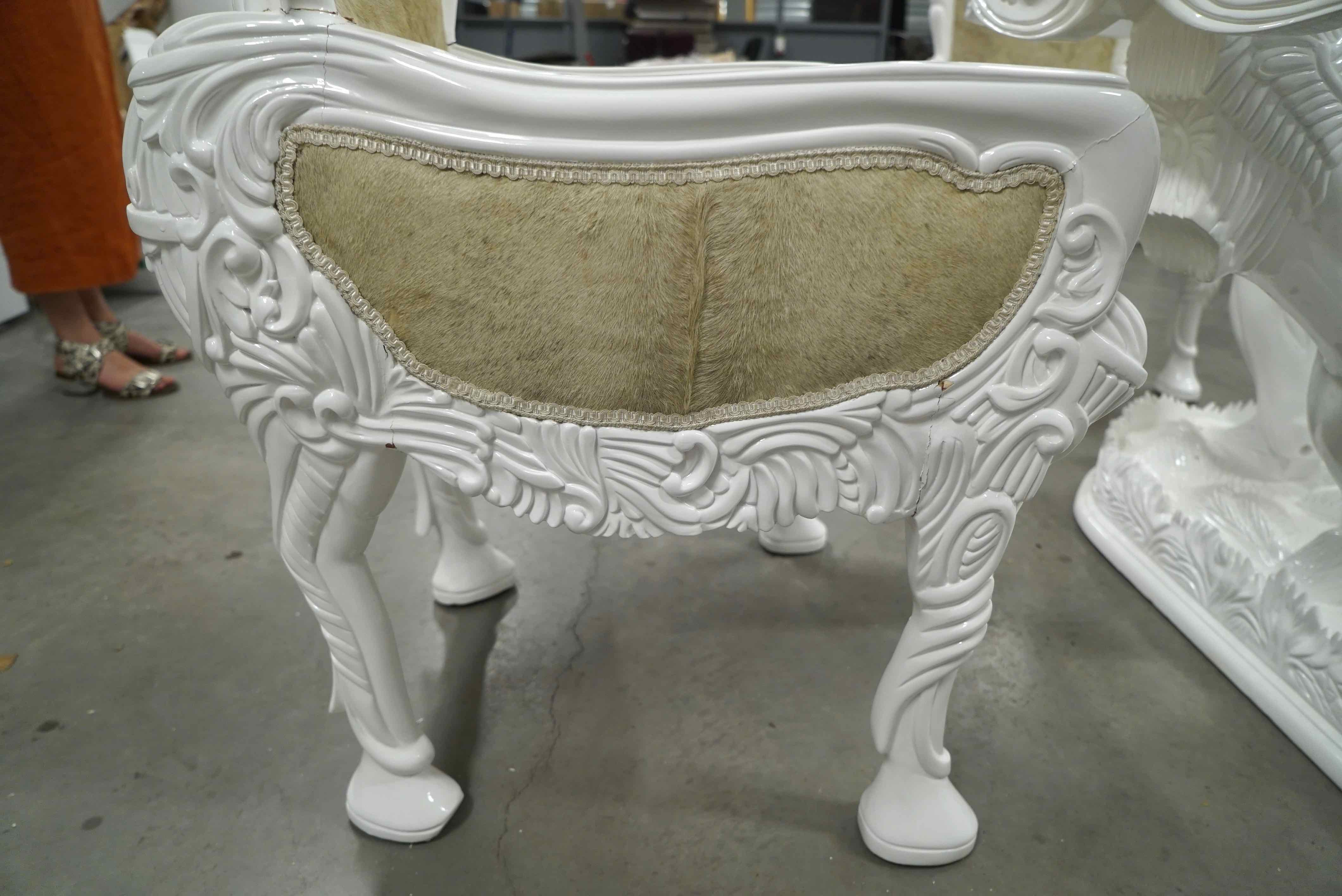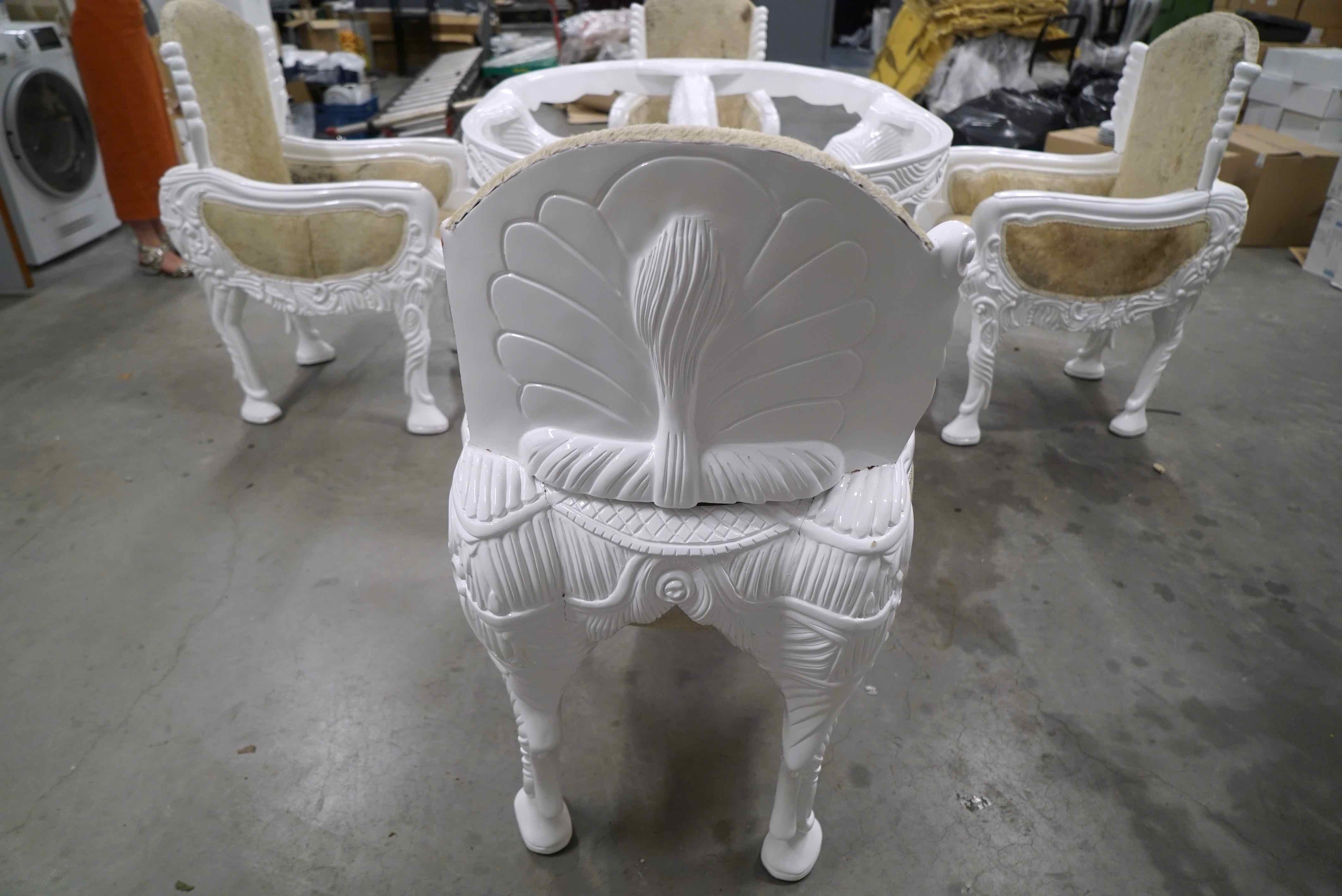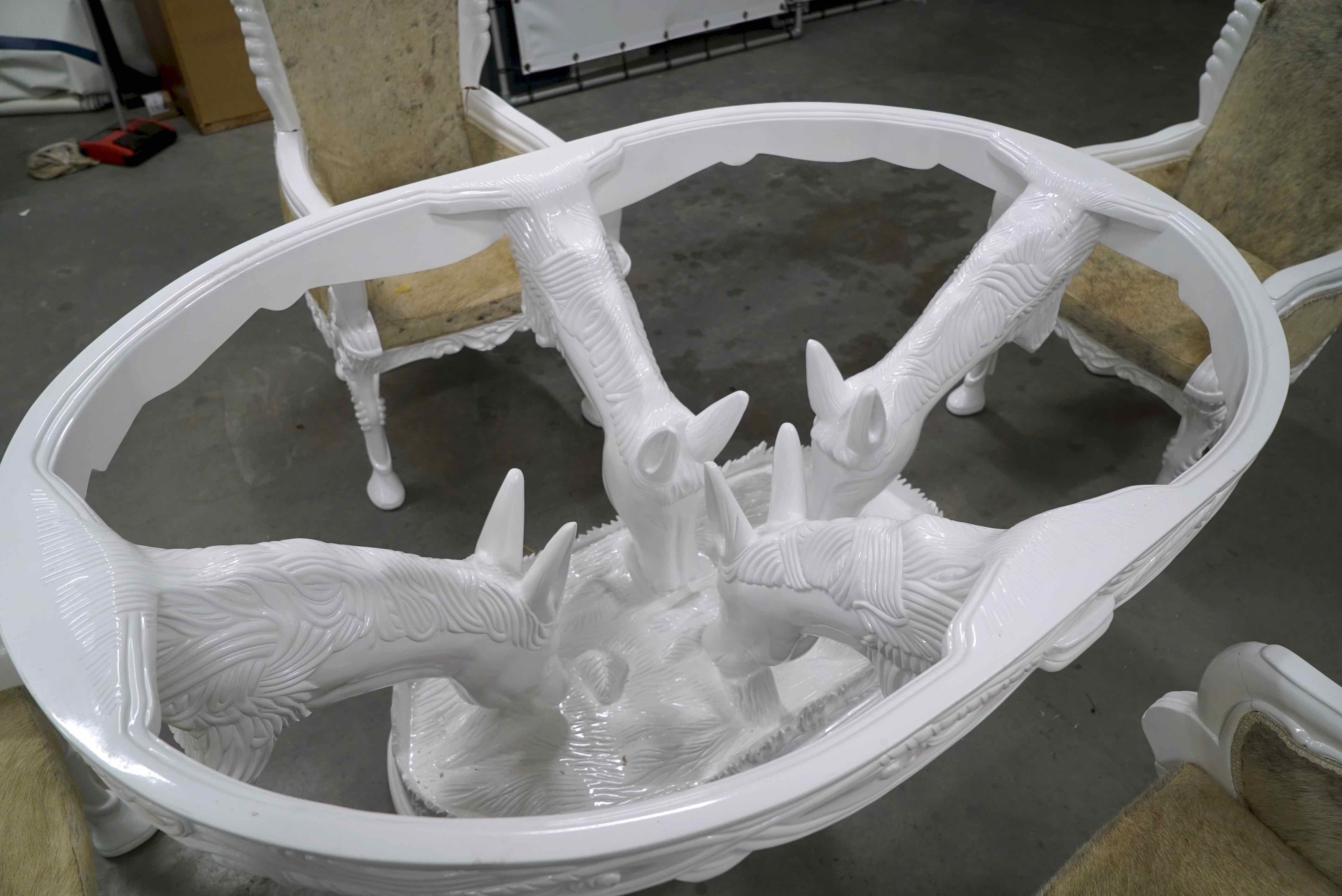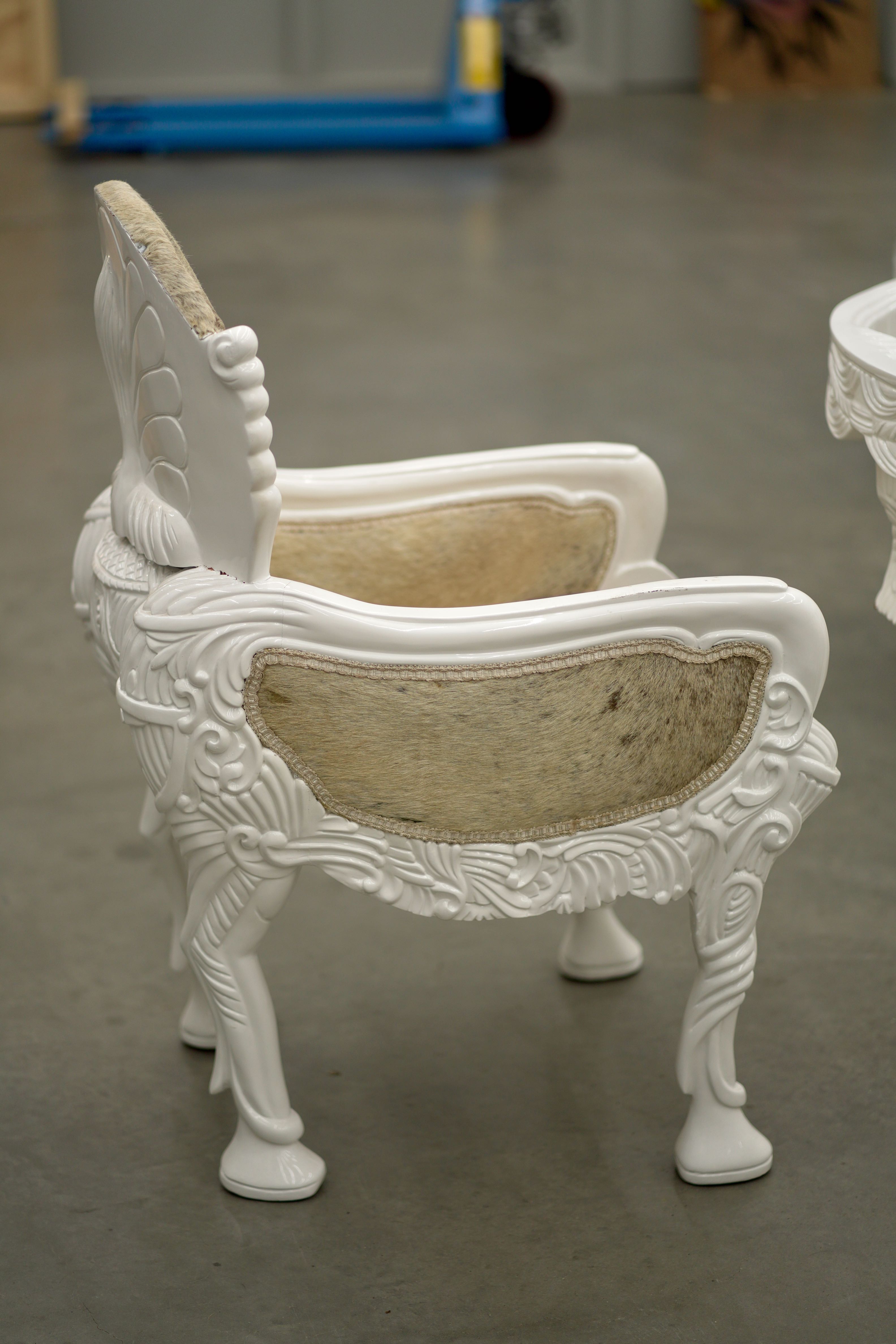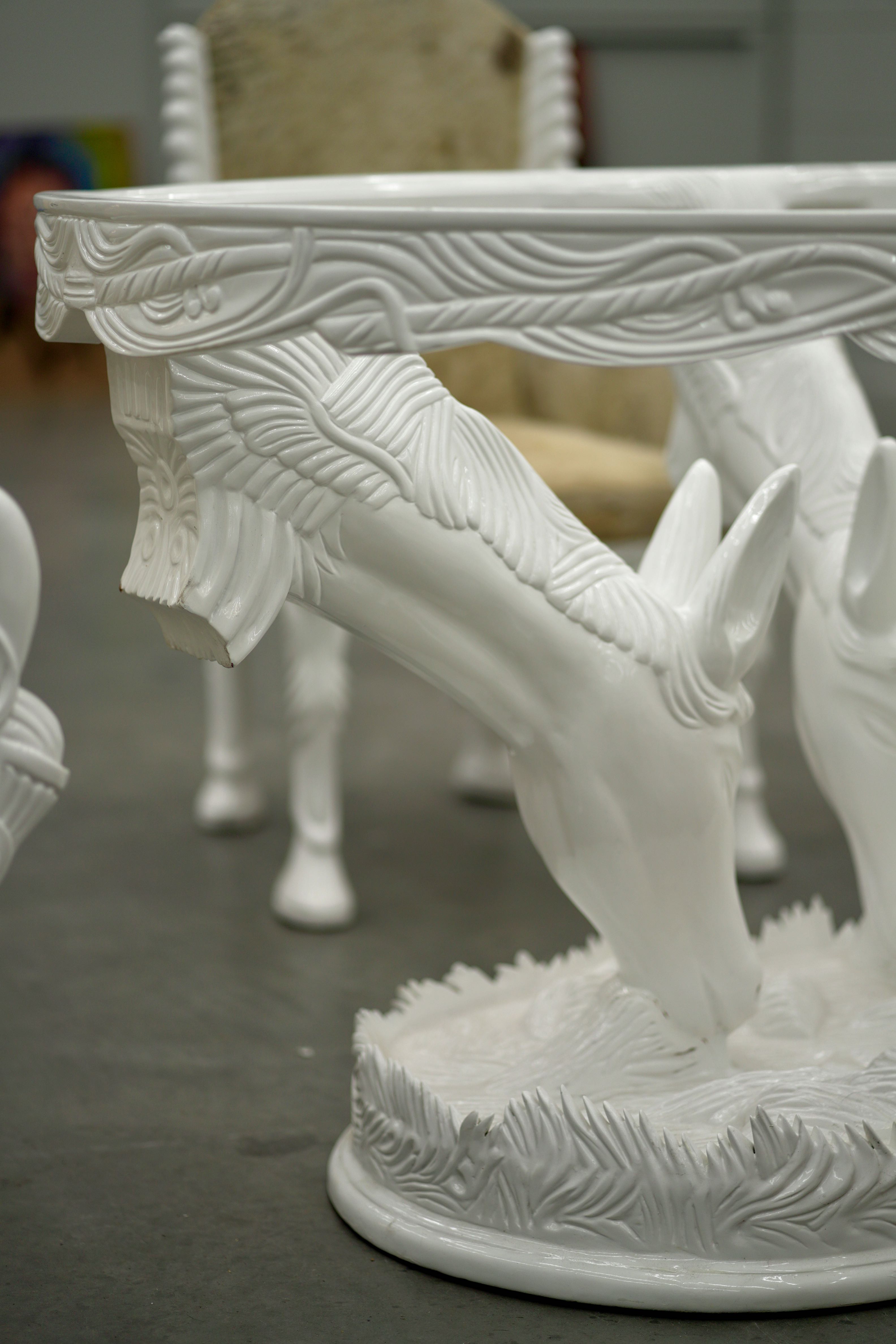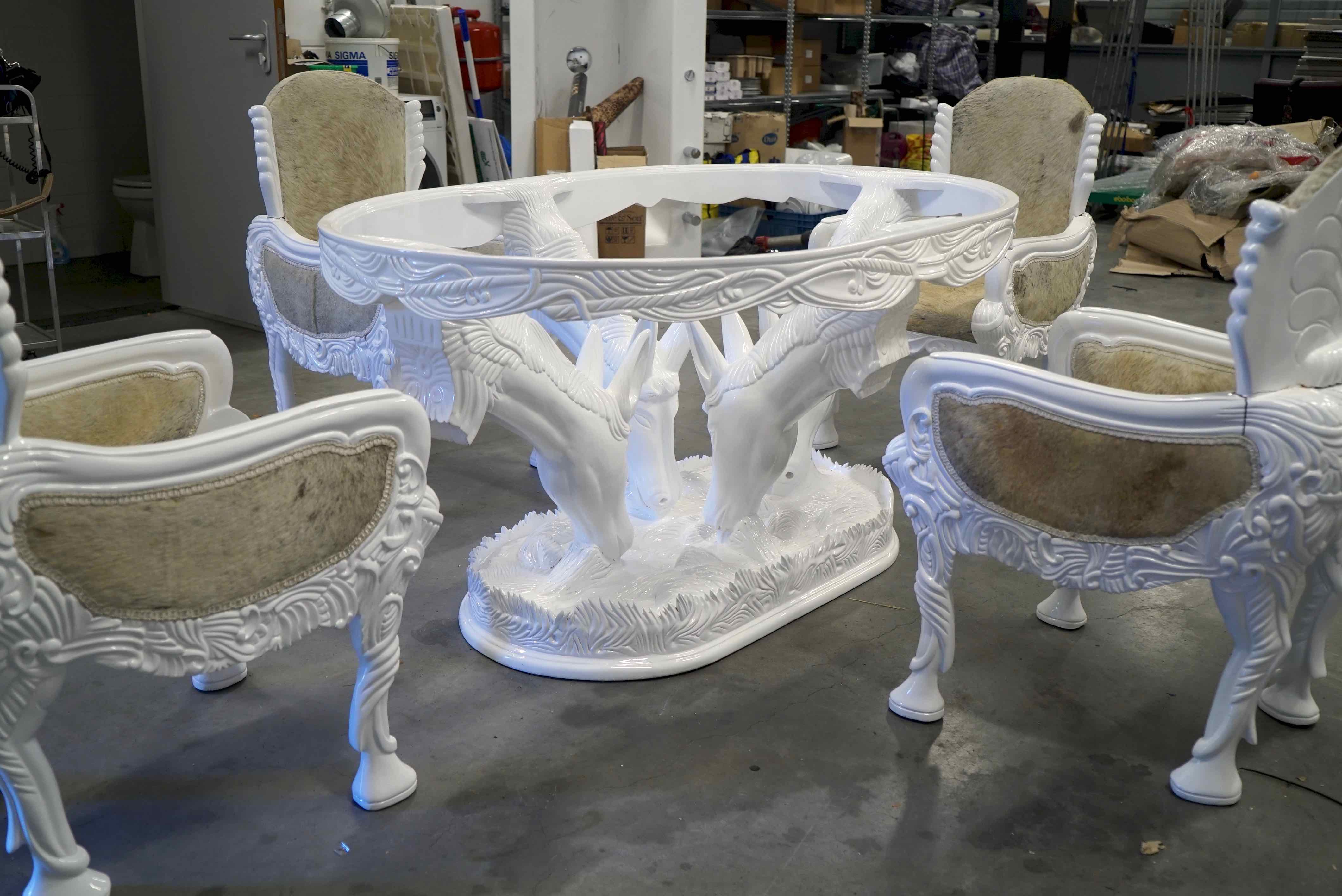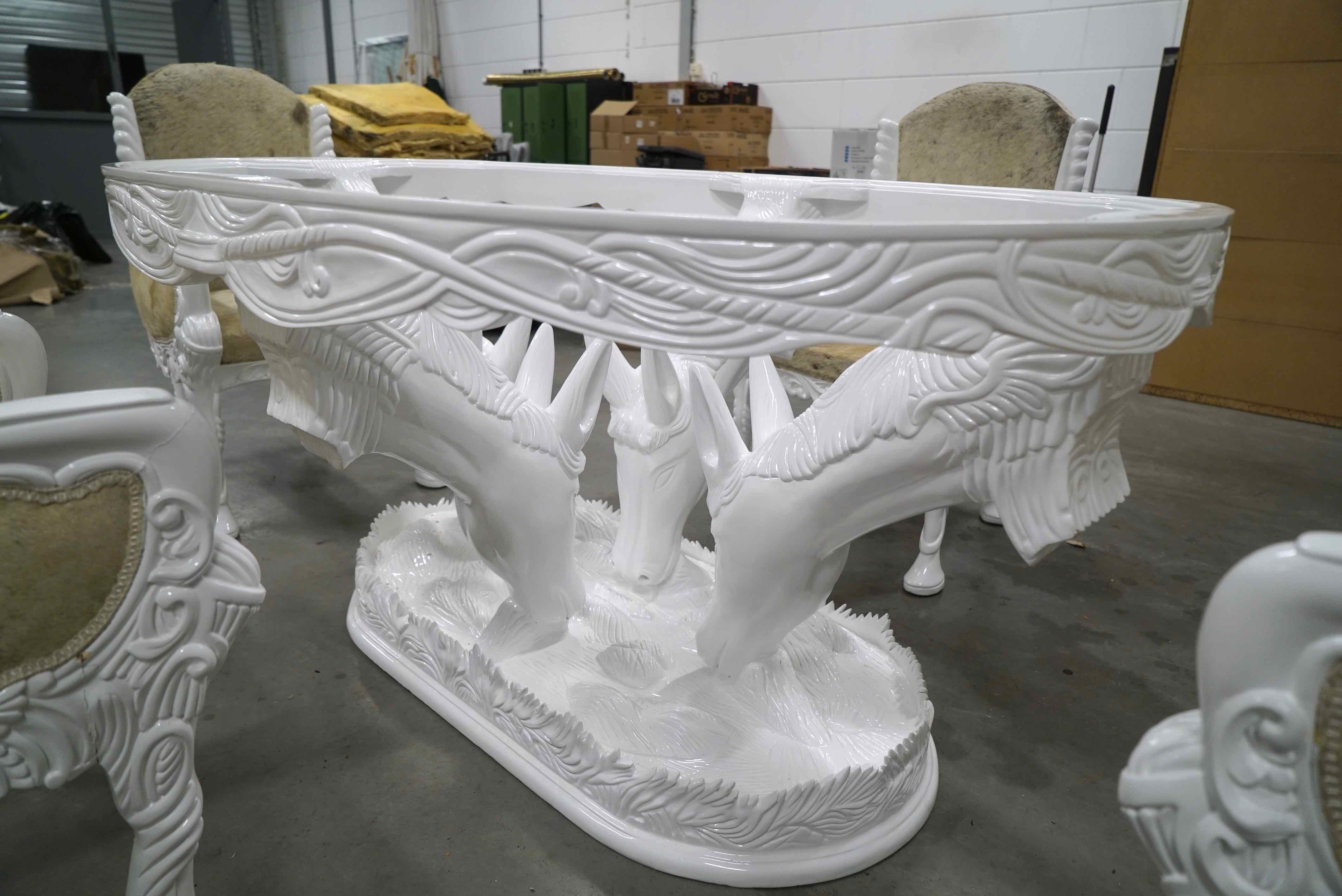A sculpture by Tarik Sadouma, Cairo, 2007
Wood, paint and hide from old beaten up donkeys. (Images below)
Stefan Ruitenbeek about the Donkey Table (English)
‘When I visited him in Cairo back in 2005, before the Arab Spring, he showed me garbage trucks that were donated by Europe. The trucks were not collecting garbage, they were just sitting there next to the road, broken, sometimes being used for other things, like hosting small shops. The garbage is still collected by donkeys, who suffer a great deal, are being packed with crazy amounts of garbage, as they are able to manoeuvre the small messy streets. The garbage trucks are often useless. He sees the garbage trucks as a metaphor for Western imperialism in the form of the arab-spring, regime change and the Iraq war. Of trying to introduce a new system from a position of supposed superiority but without any real interest for or understanding of the integrity and workings of the society you are trying to improve, change, invade or steal from.
Tarik collected the corpses of old disposed donkeys and took their worn skin, showing the marks of beatings and old age, and he made a sculpture about vulnerable and painful power structures. You can change the regime (Saddam Hussein) or the replace the donkey with garbage trucks, but you are removing (a painful and maybe evil) balance. The Donkeys are supporting a table, they are grazing in the white, lush paradise of donkeys, framed by the open table, the table is actually a hole through which you look at the donkeys, whose necks are, as you sit on the chairs, also phallic symbols coming from between your legs. These ‘executive’ tables are symbols for the power meetings that crony-capitalists have with each other. All sitting at a table and doing their mafia game, whilst riding the donkey, keeping people poor and the country corrupt and inefficient in order to maintain the status quo. The table is painted white so you don’t see the natural wood. It’s contained and put behind the white lacquer.
The most beautiful thing about the sculpture to me is the voices of the woodworkers that breakthrough. They see it as an insult to have to create such a crazy thing as a donkey table. They want to carve things that are powerful. Not those ‘low-class’ donkeys. Tarik created an ‘assignment’ for them that they feel critical towards. Yet, you can really see that these guys know what donkeys look like. There is a tenderness in the woodwork. Like archaic greek sculpture. It’s not like a Jeff Koons sculpture where you just use the craftsmanship to do pop-art. It’s a portrayal of these workers, reflected in these donkeys.
Tarik made a whole bunch of sculptures like this, creating a telling synergie between the mindset of those woodworkers and his own projections, and I am currently trying to finance and arrange a transport to Holland.
Stefan Ruitenbeek about the Donkey Table (Dutch)
Dit kunstwerk is bekleed met afgebeulde ezelhuid. Je ziet de striemen in het leer. Het was een heel gedoe voor Tarik om de oude ezels te laten slachten. Want illegaal omdat je in Egypte geen ezelvlees mag verkopen. Als je deze tafel in het echt ziet dan werkt het ontbrekende tafelblad heel mooi. Als een vlies wat er toch is waardoor je vanaf die stoel naar die idylle van met elkaar grazende ezeltjes kijkt. Terwijl je toch op die gemartelde constructie zit van ezeltroon, ezelkoppen en ezelpootjes. Het is een beeldende constructie die verschillende machtsperspectieven samenbrengt.
De vorm is geïnspireerd op faraonische beeldtaal. De ezels zijn voor tarik belangrijke anekdote over Egypte. Ze zijn primitief maar essentieel voor het ecosysteem. De door Europa gedoneerde vuilniswagens staan als wrakstukken langs de weg. Onbruikbaar want niet geschikt om tot in de kleine straatjes te komen. De ezels worden tot meters hoog bepakt met vuilnis. Ze worden gemarteld maar zijn noodzakelijk en belangrijk.
Tarik is deels opgegroeid in Egypte en de Arabische regio gaat hem aan het hart. De Arabische lente (2010) en bijbehorende Europese progressieve propaganda functioneerden volgens Tarik zoals die hierboven genoemde Europese vuilniswagens. Als je werkelijke progressie zou willen in de Arabische wereld, dan moet je dat doen met kennis en liefde voor de manier waarop een plek werkt. Ook daar waar het pijn doet. Het Westerse gelijkheidsdenken en universalisme schiet daar tekort, met zijn moralisme en ingesleten idee over wat superieur, democratisch en vrij is.


